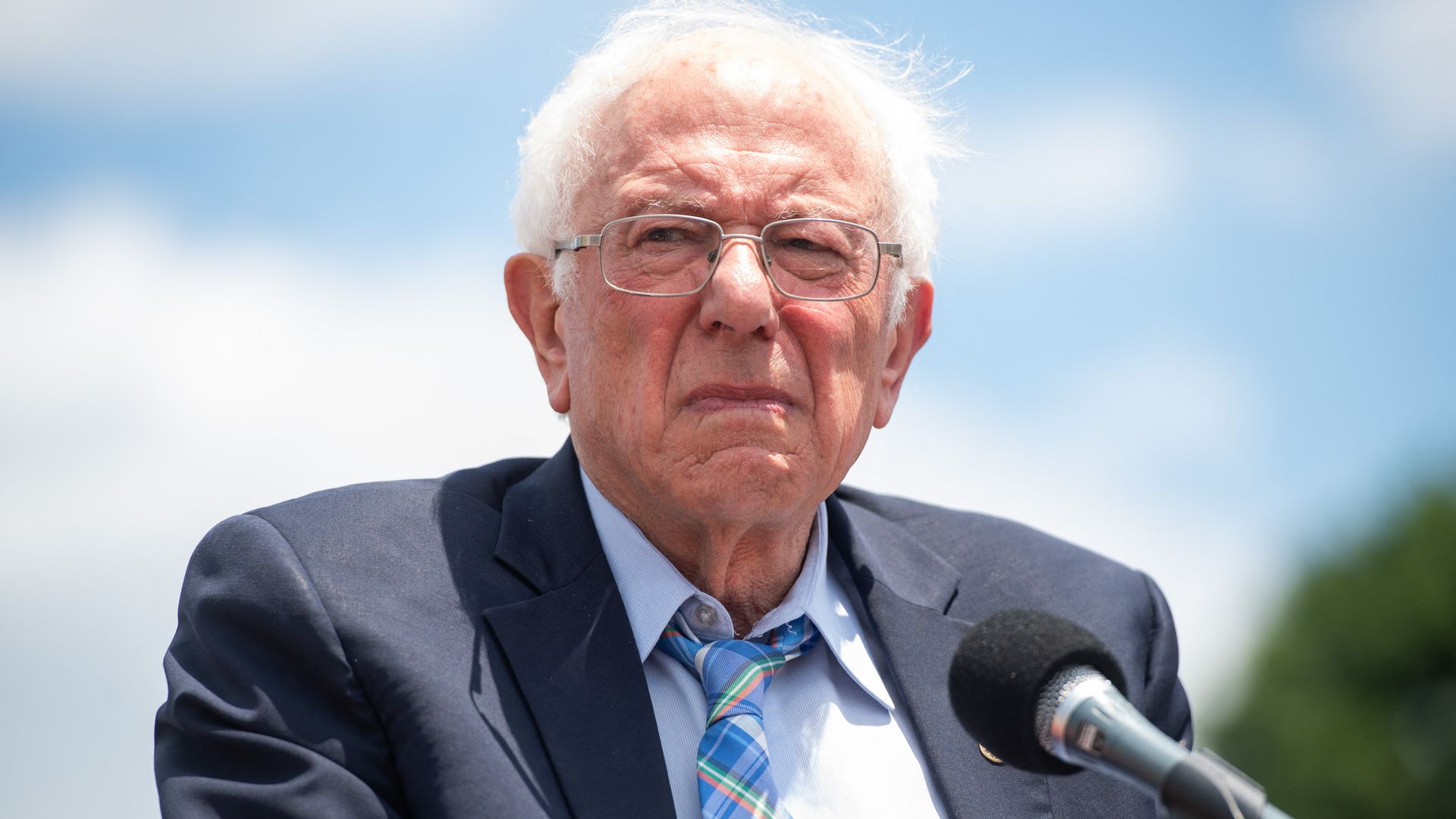Reality bites Bernie
Add Axios as your preferred source to
see more of our stories on Google.

Sen. Bernie Sanders during an outdoor protest last month. Photo: Saul Loeb/AFP via Getty Images
Key negotiators expect the Senate Budget Committee to settle on a roughly $3.5 trillion reconciliation package as the starting point for a Democrat-only bill for "soft" infrastructure, people familiar with the matter tell Axios.
Why it matters: That total is well below the $6 trillion that Sen. Bernie Sanders — the Vermont independent who leads the committee — had initially proposed. Adopting it would be a blow to his fellow progressives.
- The emerging agreement will, however, cover all of the major Biden administration proposals on soft infrastructure, including the president's families, climate and housing programs, according to a source familiar with the Senate budget resolution discussions.
- While negotiators are still finalizing details, the proposal is close to fully offset with new revenues, among other pay-fors.
- The roughly $3.5 trillion could get shaved down further once the full Senate — including centrists like Sens. Joe Manchin (D- W.Va.), Kyrsten Sinema (D-Ariz.) and Jon Tester (D-Mont.) — extract their own demands.
- The package will need the support of every Democrat on the Senate floor to pass.
Driving the news: Sanders is still pushing for a high number, telling the New York Times' Maureen Dowd for an interview published Sunday that $2 trillion to $3 trillion is “much too low.”
- Sanders will have to convince centrists on the committee such as Sen. Mark Warner (D-Va.), who hasn’t revealed his top-line number but privately suggested it's more in the $3- to $4-trillion range.
- After two weeks of staff negotiations, senators on the Budget Committee are expected to meet Monday evening to try to bridge differences on the total size of the package and how much of it needs to be paid with new revenues.
- "A lot of work has gone into the effort and much more work needs to be done," said Mike Casca, a spokesperson for Sanders. "Sen. Sanders wrote a $6 trillion proposal to address the desperate needs of working people and the existential threat of climate change, and he’s confident that Democrats will come together around a reconciliation bill that does just that."
The big picture: Senate Majority Leader Chuck Schumer (D-N.Y.) has declared he wants the budget resolution and the bipartisan infrastructure package both to pass the full Senate before senators leave for their August recess.
- That timeline will put pressure on senators worried about having some of their recess canceled, which could complicate lawmakers' fundraising plans.
Go deeper: Revenues are emerging as a key dividing line within the Democratic caucus, with centrists like Manchin saying new spending will have to be paid for with new taxes.
- Other centrists are uncomfortable with raising taxes on corporations, capital gains and personal income too high, which in turn puts a ceiling on any new spending.
Between the lines: The White House is taking a wait-and-see approach and wants to give Senate Democrats the space to compromise.
- House centrists have no interest in voting for anything that can’t pass the Senate, including tax increases, putting most of the action in the Senate.
Editor's note: This story has been updated with a comment from Mike Casca, a spokesperson for Sanders.
